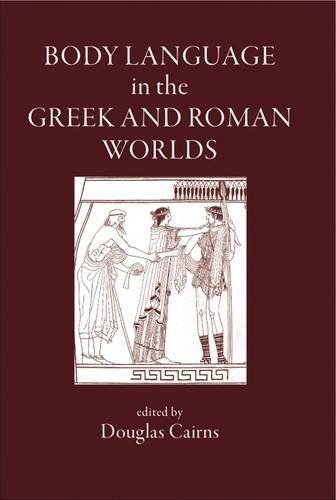
Body Language in the Greek and Roman Worlds
A distinguished cast of scholars discusses models of gesture and non-verbal communication as they apply to Greek and Roman culture, literature and art. Topics include dress and costume in the Homeric poems; the importance of looking, eye-contact, and face-to-face orientation in Greek society; the construction of facial expression in Greek and Roman epic; the significance of gesture and body language in the visual meaning of ancient sculpture; the evidence for gesture and performance style in the texts of ancient drama; the erotic significance of feet and footprints; and the role of gesture in Roman law. The volume seeks to apply a sense of history as well as of theory in interpreting non-verbal communication. It looks both at the cross-cultural and at the culturally specific in its treatment of this important but long-neglected aspect of Classical Studies.